Hungary Helps
Emergency response
Emergency response is the first phase of humanitarian crisis management that is the cycle of stabilizing procedure and often attracts the most attention including the resources. The impact that could be achieved highly depends on the previous preparations that help the quick mobilization on the crisis location.
The Hungary Helps Program helps communities in need with relief aid specially designated for emergency events and through prepared local partners with short response time on the ground. Through helping people in crisis areas the Hungary Helps Program helps them to thrive locally also helping the medium-term recovery of the affected community. In 2020 the Hungary Helps Program provided immediate financial assistance to a total number of 16 crisis events, in 10 different countries in the Middle East, Africa, and South Asia. The amounts were used under the coordination of the local partners to deliver food, basic medical services, and medicine, including – in case of need – accommodation and shelter for those in need.
The previously mentioned emergency event from 2020 fall into 4 main categories, as follows:
- Pandemic Covid-19 caused food emergencies with a total number of 10 different projects;
- Floods in Nigeria, Ukraine, and Sudan;
- Conflicts in Bangladesh and Armenia;
- Other events – chemical accident caused explosion in Lebanon, Beirut.
Hungary Helps
Pandemic Covid-19 caused food emergencies
In crisis areas in Africa, the Middle East the level of food security became critical due to the restrictive measures introduced in the wake of pandemic Covid-19 and the increasing economic recession. Densely populated urban regions and minority groups already exposed to social discrimination have been particularly hard hit. In Nigeria, Islamist terrorist organizations have taken advantage of the emergency to increase their activity, with attacks aimed at looting the granaries of villages and burning their crops. According to UNICEF, the number of people in the Democratic Republic of Congo, who have been weakened by insufficient nutrient intakes and are therefore at risk of health, is on constant rise at a rapid rate, affecting millions of people. To alleviate the food crisis, the local partners of Hungary Helps Program received donations, which were used to distribute food packets to the most deprived persons that best and most rapidly met the local food needs.
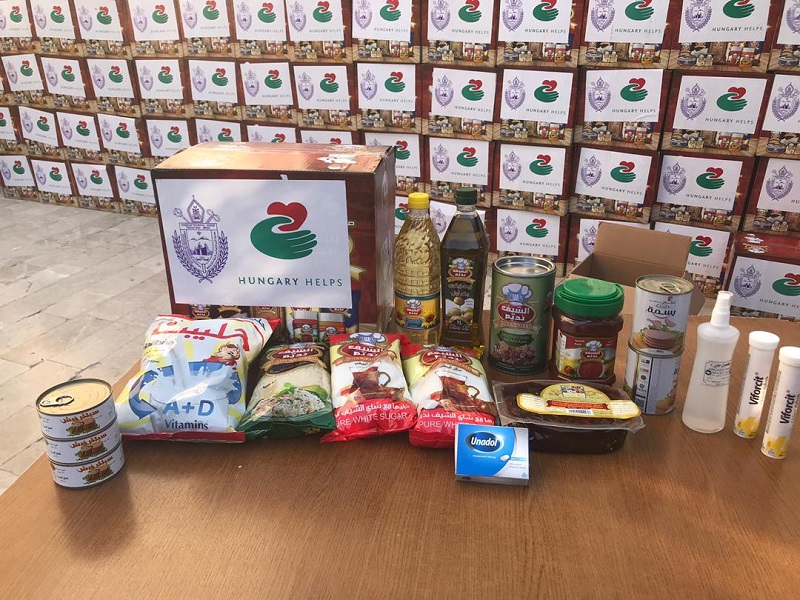
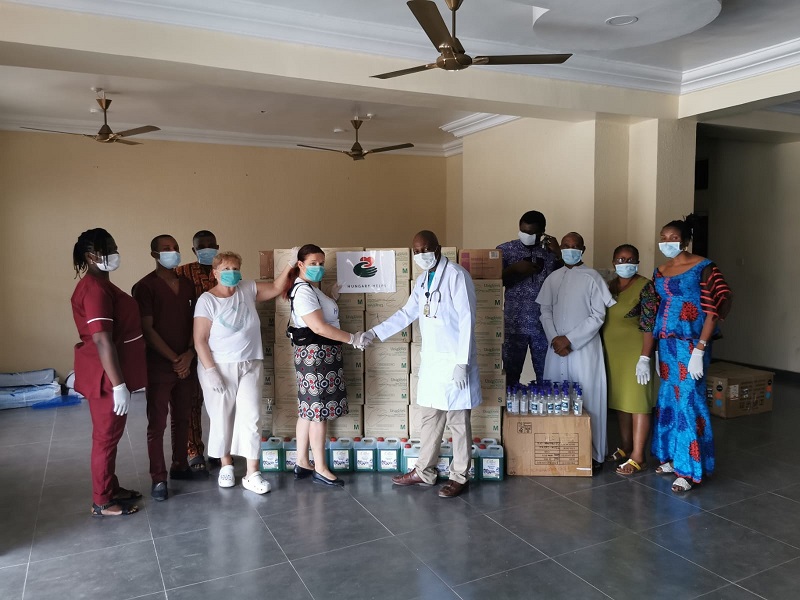
Hungary Helps
Floods
During 2020 three emergency flood relief measures were financed by the Hungary Helps Program in Nigeria, Ukraine, and Sudan. The main objective of the projects was to provide food and non-food items for example sandbags for protection, blankets, mattresses to accommodate displaced residents in mass shelters, mosquito nets and to distribute hygiene kits for the families affected by flooding, girls, women and for those with a special health condition. In Nigeria, Hungary Helps Program emergency aid also enabled the screening of 1,200 potentially infected patients for malaria and typhoid fever, as well as treatment of infectious diseases spread by the floods.
Hungary Helps
Conflicts
Besides the pandemic, 2020 had several conflicts in two of which the Hungary Helps Program provided emergency humanitarian aid. The Burmese Rohingya Muslim minority who have fled to Bangladesh are living in camps in the outskirts of Cox’s Bazar, about 400 kilometers from Dhaka. Cox’s Bazar became one of the world’s largest refugee towns in 2018 due to the large number of refugees from Burma. The donation from Hungary Helps Program partly supported the running costs of the camp, the work of the medical staff, and the employment, social, and development programs of the young people living in the camp.
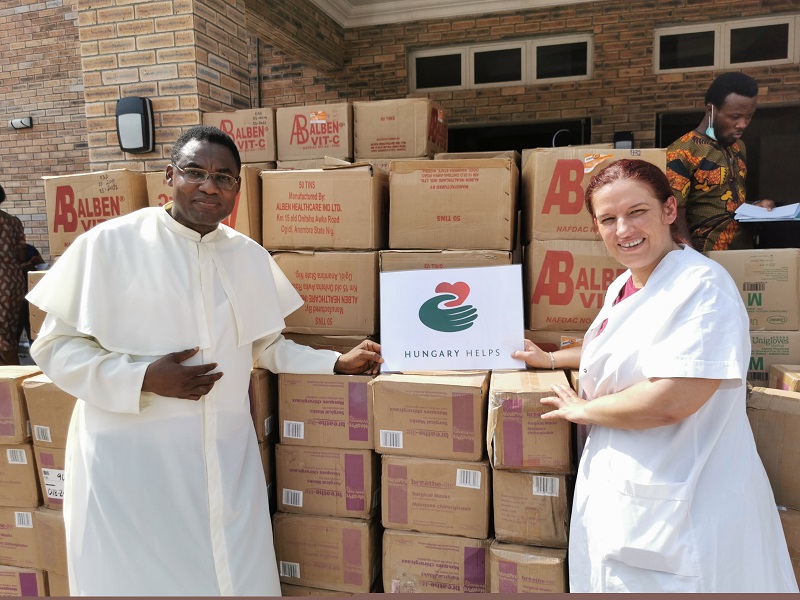
The conflict caused a mass influx of people fleeing Nagorno-Karabakh has severely affected and overwhelmed the capacity of the Armenian social and health care system, which was already stretched by the protracted Covid-19 pandemic. The project was designed to provide emergency relief to people fleeing Nagorno-Karabakh, responding to the needs that arose, including shelter, food, hygiene and health items, accommodation, and clothing.
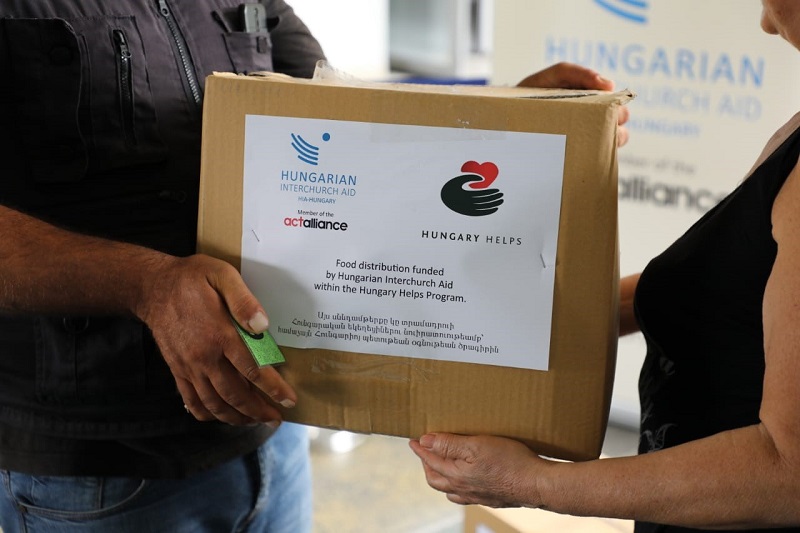
Hungary Helps
2020 Beirut explosion
On the 4th of August, 2020, a huge explosion occurred in the port of Beirut. The explosion caused the collapse of nearby houses, severe damage to buildings and vehicles over a wide area, and the detonation of several kilometers of doors and windows, destruction of furniture and medical equipment in hospitals. By estimations around 300,000 people have lost their homes in the blast and needed temporary shelter, drinking water, and food aid.
The Hungary Helps Program assisted victims of the blast through financial help by supporting the repair and reconstruction of the damaged buildings.
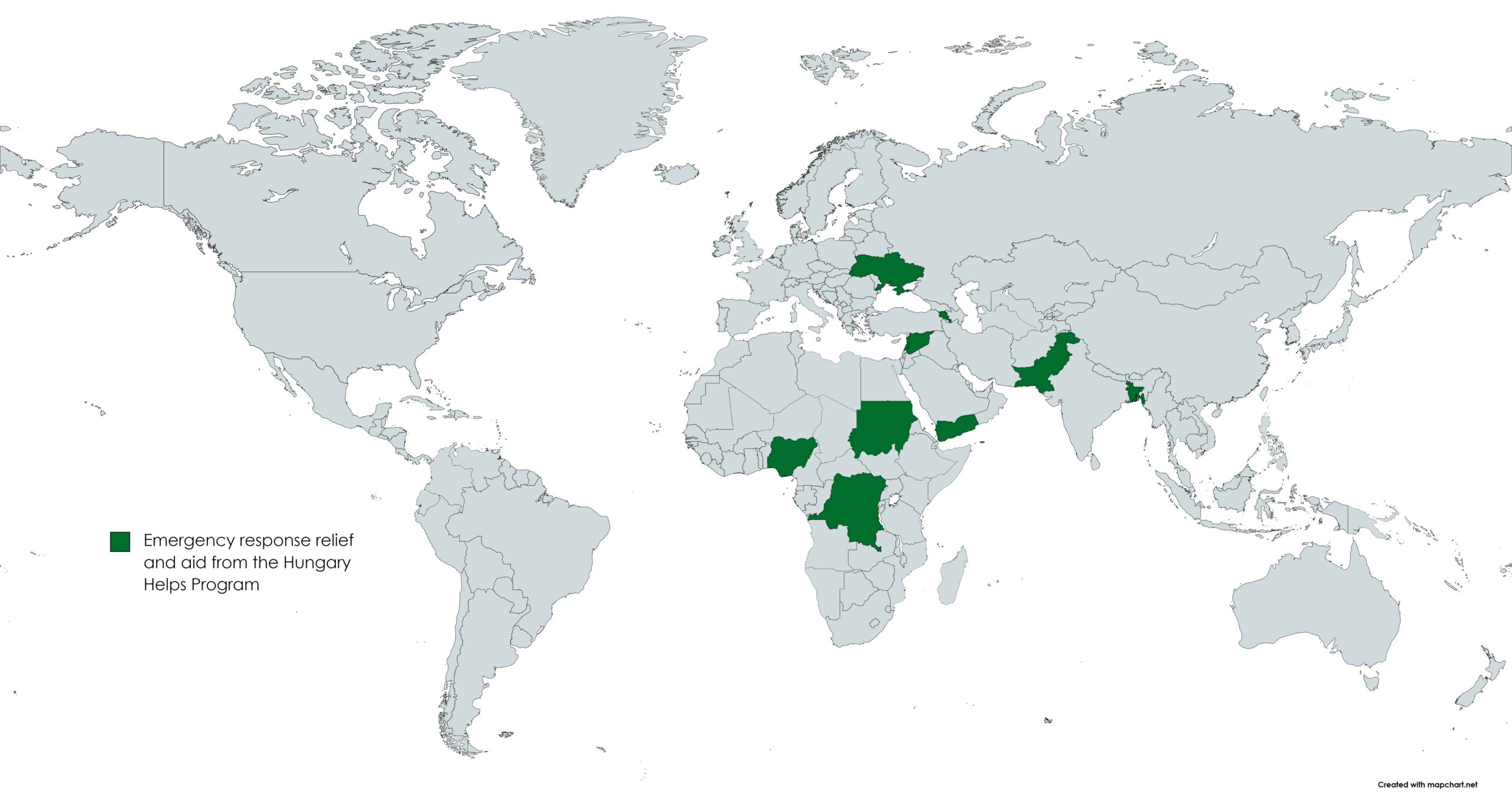
Countries marked:
Democratic Republic of Congo, Nigeria, Sudan, Armenia, Lebanon, Syria, Yemen, Ukraine, Pakistan, Bangladesh.